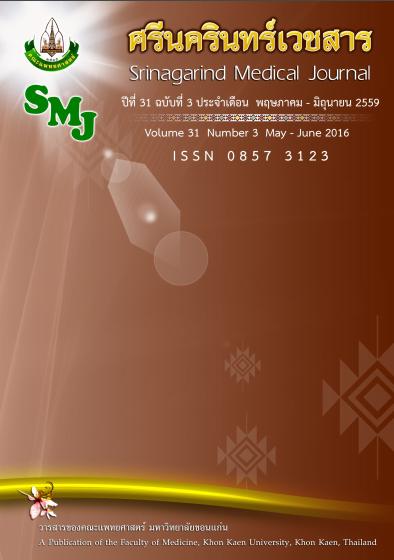High Sugar Intake Alters a Pattern of Renal Nerve Activity Specifically to Increase Renin Release in Anesthetized Rats
Keywords:
blood pressure, high sugar, renal nerve, renin-angiotensin system, sympathetic nerveAbstract
Background and Objective: High sugar intake can alter renal excretory function before inducing hypertension and insulin resistance via an increase in renin-angiotensin system activity. Renal renin release is dependent on renal sympathetic nerve activity and its pattern of response. This study tests the hypothesis that a high sugar diet after weaning alters a pattern of renal nerve activity variability at the frequency component related to renin release in adult male rats.
Methods : Male Sprague-Dawley rats were fed normal rat chow and tap water containing 5% glucose (glucose group) or water alone (control group) after weaning until end of the experiment. At 7-8 weeks of age, blood chemistry, arterial pressure, heart rate, and renal sympathetic nerve activity were measured in anesthetized rats.
Results : Body weight, mean arterial pressure, heart rate, plasma sodium, plasma potassium, plasma bicarbonate, plasma chloride, plasma creatinine, blood urea nitrogen, and renal nerve firing rate were not significantly different between the two groups. Power spectral analysis of renal nerve activity pattern by using fast Fourier transformation indicated that compared to control, high sugar intake increased the power spectral density between 0.25 to 0.75 Hz (related to renin release), while that above 0.75 Hz (related to sodium excretion (1.0-2.5 Hz) and renal blood flow (2.0-5.0 Hz)) were not affected.
Conclusion : These data indicate that a high sugar diet after weaning alters a pattern of renal sympathetic nerve activity specifically to increase renin-angiotensin system activity.




